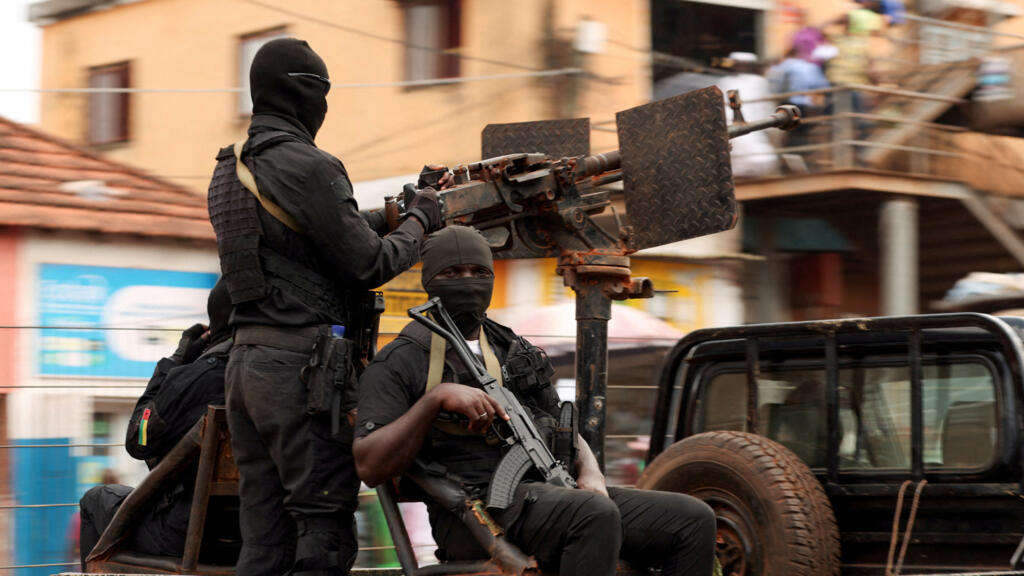
Observers from West Africa's Ecowas bloc and the African Union have expressed concern over Wednesday's military coup in Guinea-Bissau and the arrest of election officials, a joint statement from the organisations said.
A group of army officers said they had seized “total control” of the coup-prone west African country, arresting its president, closing its borders and suspending its electoral process three days after Sunday's contested general elections.
General Denis N'Canha, head of the presidential military office, told journalists that a command “composed of all branches of the armed forces” was assuming control of the country “until further notice”.
President Umaro Sissoco Embalo, who had been favoured to win re-election in last Sunday's polls, was arrested and held at general staff headquarters where he was being “well treated”, a military source told French news agency AFP.
Guinea Bissau heads to the polls amid controversy over barred opposition
Empty streets
A senior officer who also confirmed the arrest said Embalo had been detained along “with the chief of staff and the minister of the interior”.
Opposition leader Domingos Simoes Pereira, who was barred from last weekend's presidential election by the Supreme Court, was also arrested on Wednesday, two sources close to him said.
By the end of the day, the streets of Bissau were deserted and the military had taken control of all the main thoroughfares, AFP journalists reported.
Incumbent Embalo and opposition candidate Fernando Dias each claimed victory Tuesday, even though official provisional results were not expected until Thursday.
“It's regrettable that this [coup] announcement came at a time when the missions had just concluded meeting with the two leading presidential candidates, who assured us of their willingness to accept the will of the people,” the observers said in a statement.
The observer missions, which included Mozambique's former president Filipe Jacinto Nyusi and Nigeria's former president Goodluck Jonathan, called on regional bodies to take the steps needed to restore constitutional order.
“We urge the armed forces to immediately release the detained officials to allow the country's electoral process to proceed to its conclusion”, the statement from the Economic Community of West African States and African Union observers said.
Borders closed
Military spokesperson Dinis N'Tchama said on Wednesday that a plan had been uncovered to destabilise Guinea-Bissau “involving national drug lords”, which had included “the introduction of weapons into the country to alter the constitutional order”.
He said military forces had halted “the entire electoral process”, suspended “all media programming”, closed “land, air, and sea” borders and imposed a mandatory curfew.
UN secretary-general Antonio Guterres was “following the situation with deep concern”, his spokesman said, and urged all stakeholders to “exercise restraint and respect the rule of law”.
Guinea-Bissau has experienced four coups since gaining its independence from Portugal in 1974, as well as multiple attempted coups.
Political stability was one of the major issues in the election, given the nation's turbulent past. In October the country's army said it had thwarted an “attempt to subvert the constitutional order” and arrested several senior military officers.
(with newswires)







